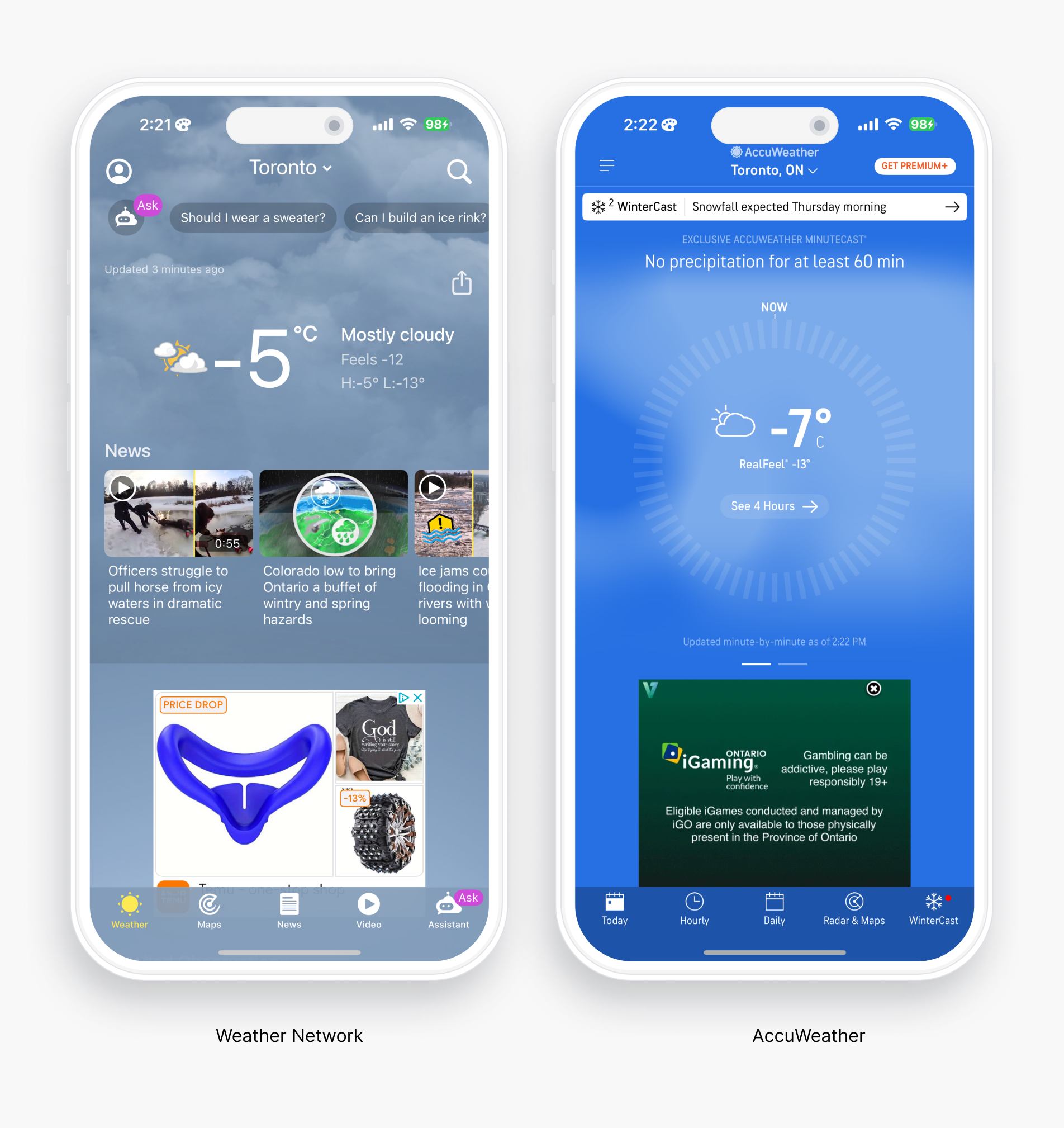


My investigation began with a simple hypothesis:
CIBC has a powerful "Insights" engine, but its value is often buried. A heuristic evaluation of the current app revealed that while the data was present, the experience was fragmented and passive.
Users are forced to navigate between a generic "Advice" tab filled with articles, a separate "Insights" feed for notifications, and their main dashboard to piece together their own financial story.
The app could tell a user they were "Off track" on a savings goal, but failed to provide an immediate, integrated path to get back on track. This disconnect between information and action was the core problem I set out to solve.
To inform my solution, I looked outside the banking industry for inspiration, researching how leading technology companies like YouTube and Reddit are successfully integrating generative AI.
My research journey was comprehensive. I dove into existing travel apps, observed group planning dynamics, and conducted user interviews. I aimed to grasp how groups share ideas, make decisions, and discover activities.
Here’s what I found:
Planning a trip often involves fragmented communication across various platforms, leading to lost details, forgotten agreements, and last-minute confusion.
During the trip, changes in plans are hard to communicate swiftly, causing wasted time, missed experiences, and a sense of disconnection among travelers.
When a flight is canceled or a museum unexpectedly closes, everyone scrambles to find out the same information individually.
Travelers struggle to connect with locals, confidently order food, and understand important signage due to language differences.
With these insights, I designed solutions that would transform the group travel experience:

The Trips screen is your travel command center. View upcoming itineraries, revisit past trips, and easily access your saved destinations to fuel your wanderlust.

Integrated chat with group and individual messaging options streamlines communication and decision-making.
.png)
This advanced feature enables users to speak in their native language and have it translated into the language of the other person in real-time, even in offline mode for emergencies or when internet access is limited.
This project highlighted the importance of user research in identifying and addressing needs. By focusing on the users, we naturally arrived at effective solutions. Interviews and surveys offered diverse perspectives, which shaped impactful design decisions.
Given more time, conducting additional user interviews would uncover deeper insights. Observing and interviewing users on both web and mobile platforms would enhance our understanding of cross-device needs.